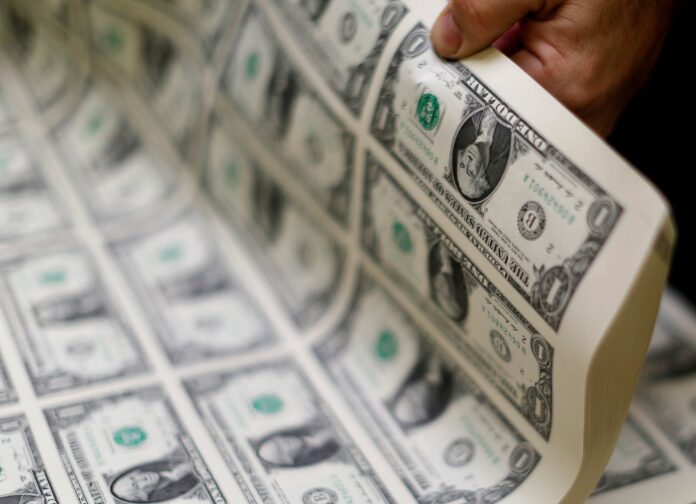WASHINGTON: An increasingly bearish picture is unfolding for the U.S. dollar, which has suffered its worst week since March on signs that Federal Reserve money printing rather than government spending may be deployed to bolster the economy in the aftermath of Tuesday’s elections.
A potentially divided U.S. government with Republicans in control of the Senate may mean a smaller fiscal stimulus package from lawmakers, increasing pressure on the U.S. central bank to ramp up its bond-buying and other economically supportive policies that have weighed on the dollar this year.
Major networks on Saturday declared Democrat Joe Biden the winner of the U.S. presidential election, offering some certainty after days of conflicting reports about who might run the White House for the next four years.
Fresh concerns come on top of issues that have dragged the dollar lower for most of 2020 and led some investors to fret about its status as the world’s dominant reserve currency, including expectations of rock-bottom interest rates and massive U.S. government spending for years to come.
The U.S. currency is off about 10% from its highs of the year and stands near more than a two-year low. Its decline has buoyed rallies in assets some investors see as dollar alternatives, such as gold and bitcoin, which are up 4% and 12% so far this month, respectively.
DOVISH FED
A weaker dollar would likely be welcomed by many U.S. companies, as it makes it cheaper for multinationals to convert earnings back into their home currency while boosting the competitiveness of U.S. products abroad.
But it also pushes up the value of other currencies, complicating the efforts of economies like the eurozone and Japan to boost growth and potentially leading other central banks to cheapen their own currencies in response.
The euro has gained around 6% against the dollar this year, while the Japanese yen is up around 5%.
Momtchil Pojarliev, head of currencies at BNP Asset Management, believes the dollar will sink to fresh lows over the next three months.
“The Fed is very dovish and is going to stay dovish,” he said. “The bigger the stimulus, the worse for the dollar.”
Some don’t agree with the bearish sentiment on the dollar. John Floyd, head of macro strategy at Record Currency Management, argues that while the Fed has said it will keep asset purchases at current levels, the European Central Bank recently signaled it may increase its economic support in December.
“That’s a big difference,” he said.




